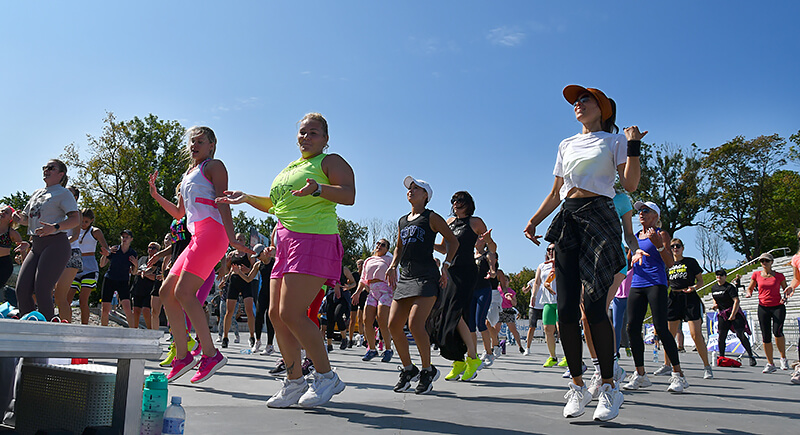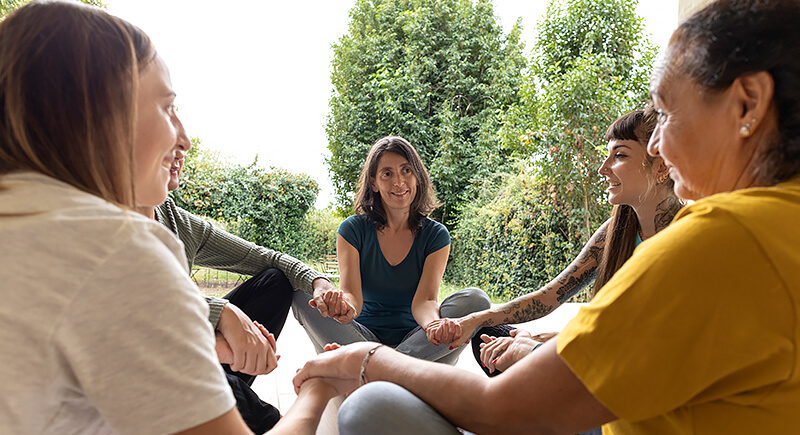Moving Somewhere New? Here’s How to Find New Friends Fast
Starting over in a new city sounds adventurous, until you realize you don’t know anyone. Making friends as an adult can be so difficult that it can feel downright awkward. But that’s when you learn about creating opportunities for connection. Most friendships grow out of small, repeated interactions over time, not instant chemistry.
So, if you’re hoping to build a local circle without forcing it, the key is showing up often and intentionally. These practical strategies can help you feel like someone who actually lives here.
Start With Your Neighbors

Credit: iStockphoto
There’s a decent chance the people living 15 feet away from you don’t even know your name. It’s time to bridge that gap. Say hi when grabbing the mail or knocking with a plate of cookies. It sets a friendly tone and can turn the building or street into a community.
Stick to Local Spots for Daily Errands

Credit: iStockphoto
Running, shopping, and grabbing coffee near home increases the chances of seeing the same faces repeatedly. Familiarity builds comfort. Doing everyday tasks in your own neighborhood gives you the best shot at natural, unforced conversations that can lead somewhere.
Make Specific Plans, Not Vague Promises

Credit: iStockphoto
The phrase “we should hang out sometime” has a terrible track record. If you hit it off with someone, offer an actual plan. Suggest coffee next Tuesday or a walk this weekend. You may think that being direct comes off as pushy, but if done right, it reads as interested.
Say Yes When You’re Invited

Credit: iStockphoto
Turning down an invite because you’re tired or unsure is tempting, but say yes anyway, at least early on. Birthday dinners, trivia nights, or casual hangouts may not all be hits, but each one widens your circle. Half the connections you’ll make start in places you nearly didn’t show up to.
Join a Class or Hobby Group That Meets Regularly

Credit: iStockphoto
Consistency matters more than charisma. A weekly dance class, book club, or ceramics course gives you recurring contact with the same faces. That regular rhythm makes talking easier and less forced. It’s also easier to chat mid-paint spill than to try to bond in a loud bar after introductions.
Be Open During Solo Outings

Credit: iStockphoto
Going places alone can feel awkward, but it often invites conversation in a way groups don’t. Reading at a park bench or grabbing lunch at the bar instead of a table gives others an easy opening. Just make sure you’re not buried in your phone if you actually want to meet someone.
Reconnect With Acquaintances in the Area

Credit: iStockphoto
Dig through your contacts, and you’d probably find someone nearby, even if it’s a distant college acquaintance, old coworker, or someone from your hometown. Reach out without overthinking it. People are usually flattered, and that semi-familiar face might be precisely the starting point you need.
Use Meetup and Event Sites Strategically

Credit: iStockphoto
There are many credible platforms that host group events in nearly every interest area, from board games to coding to hiking. Unlike traditional networking, these events are casual, frequent, and built for strangers to connect, so everyone’s expecting to talk to someone new.
Get Involved With a Religious or Spiritual Group

Credit: iStockphoto
Religious communities often have volunteer days, discussion groups, and shared meals that make recurring social contact easy. Even if you’re not deeply involved spiritually, these settings often have built-in warmth and structure that help conversations happen naturally.
Host Something Low-Key at Home

Credit: iStockphoto
You don’t need a Pinterest-perfect dinner party. A casual dessert night, pizza gathering, or football watch party signals openness to connection. You might only invite two people, but those two could invite more, and before you know it, you’ve started a friend circle.
Look for Other Newcomers

Credit: iStockphoto
People who have also just moved are often the most eager to connect. New arrivals are more open to invitations, casual meetups, or just chatting. Bonding over your “new person” status works whether it’s a new coworker, a classmate, or someone at an event.
Check Facebook Groups and WhatsApp Chats

Credit: iStockphoto
Neighborhood pages, hobby-specific groups, or new-to-town chats often translate into real meetups. These platforms can help you spot trivia nights, hikes, or local dinners. Post an intro message and see who bites. Someone always does.
Try a Coworking Space If You Work Remotely

Credit: iStockphoto
If you work remotely, isolation can sneak up fast. Coworking spaces, whether formal memberships or drop-in cafes with good Wi-Fi, offer casual background interaction. Many also host mixers or social hours that are perfect for meeting other solo workers.
Audit a Local Class or Lecture

Credit: iStockphoto
Some colleges let locals sit in on public lectures or free evening classes. You’ll be around people who are curious about something, which is usually a good social sign. Plus, learning something new tends to lower people’s guard and their phones.
Keep Conversation Standards Low

Credit: iStockphoto
Many of us overthink friendships by looking for perfect personality matches. However, some of your closest future friends might not share your background or interests. Stay open to people outside your typical “type.” Give a little grace before writing someone off too quickly.